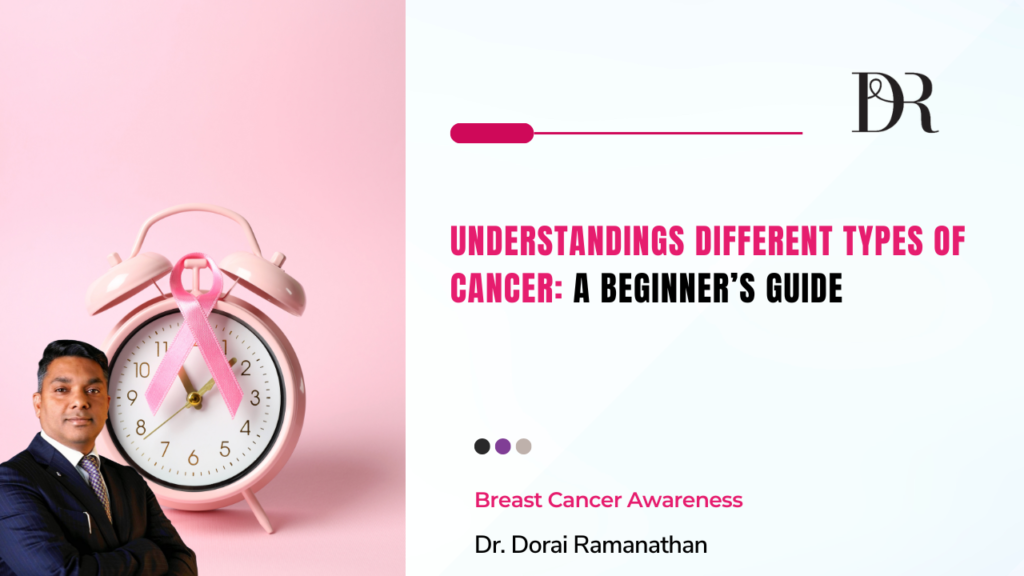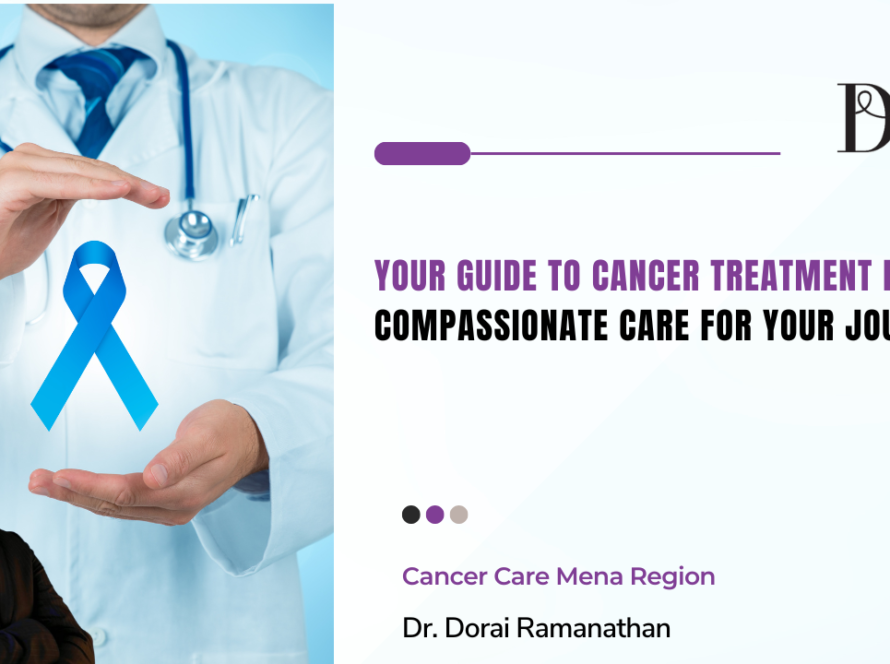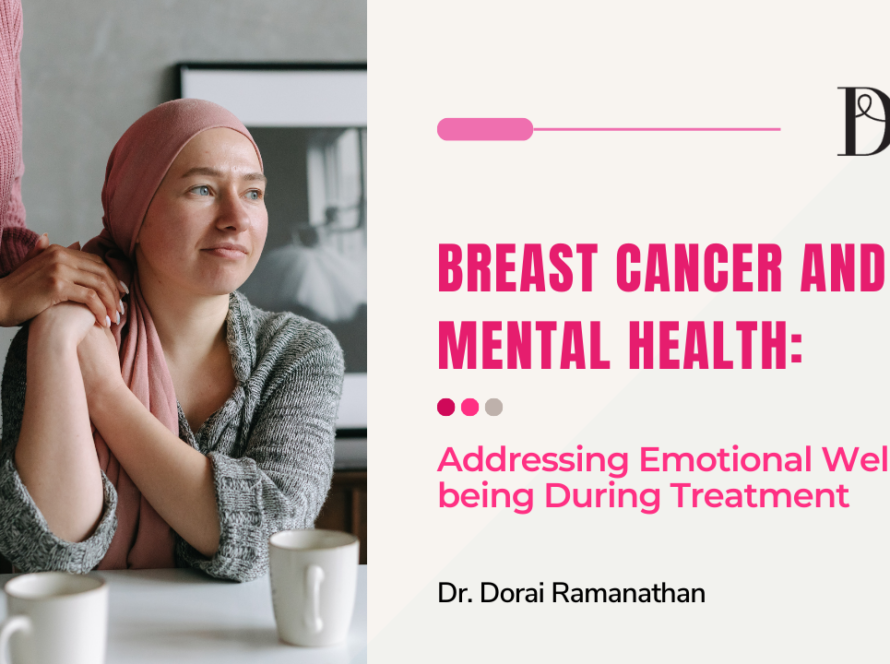
The term cancer produces deep distress in people. Everyone worries about it while this disease affects many people throughout the world. People want to understand both what cancer represents and how it grows inside us. Understanding cancer types helps us better protect our own health when dealing with this condition.
There are more than 100 medical conditions that fit into the cancer category because when body cells replicate destructively this disease group develops. Uncontrolled cells grow into tumors which spread throughout the body by breaking past their normal range. Cancers develop at varying speeds that determine how quickly patients need medical attention. Better survival chances depend on public education about cancer symptoms which leads to fast diagnosis and appropriate care.
As new medical breakthroughs keep appearing especially in Dubai cancer care patients now have better chances of getting well. Early cancer diagnosis makes a difference and education creates the foundation. Knowing about cancer symptoms and treatment options helps you take better health decisions as an individual and investor.
Our guide explains several common types of cancer with details about their signals and explains why early testing brings better results. Learning about cancer brings essential benefits to protecting your health.
Cancer Basics: Learning About Different Cancer Types
Cancer. The medical term holds significant importance yet can become manageable with proper information. When you want basic cancer education or want to support someone dealing with cancer the details in different types of cancer will help you become more aware of cancer.
Different types of cancer occur with higher frequency throughout the human body. Multiple cancers exist with individual causes along with distinct symptoms which require different treatment methods. The following breakdown in understandable human terms demonstrates that knowledge about early detection can save lives by empowering ourselves through information.
What Is Cancer, and How Does It Start?
Cancer initiation stems from uncontrolled proliferation of irregular cells that construct tumors or distribute across the human body. The normal process of cell growth with subsequent division ends with cellular death in a structured manner. Cells begin uncontrolled multiplication when one or more of genetics, lifestyle or environmental factors create problems in the system which results in cancer formation.
The treatment plans for cancer depend both on the starting organ of cancer cells and the disease aggressiveness.
Common Types of Cancer Are :
1. Breast Cancer :
The worldwide incidence of breast cancer is extensive because women typically develop this cancer but men also experience it. The disorder develops when unusual breast cells continue to multiply in breast tissue and frequently produce a growth known as a lump.
Symptoms:
- A lump in the breast or underarm
The appearance of either breast size modification or changes in breast skin texture or breast shape.
- Nipple discharge or pain
Treatment Options:
- Surgery (lumpectomy or mastectomy)
- Chemotherapy or radiation
- Hormone therapy for certain types
People can detect breast cancer early through regular self-examination paired with mammographic screening which delivers the best results for treatment.
2. Lung Cancer :
Lung cancer impairs proper lung functioning since it develops from smoking-based toxicity as well as environmental pollutants and genetic influences.
Symptoms:
Such symptoms include a cough that persists or coughing blood.
- Shortness of breath
- Unexplained weight loss
Treatment Options:
- Surgery (for early-stage cases)
- Chemotherapy or targeted therapy
- Immunotherapy for advanced cases
Smoking history and dangerous chemical exposure require regular screenings since this practice helps identify lung cancer during its early stages.
3. Colorectal Cancer :
Regular screenings represent an essential way to stop this form of cancer as this condition begins in the colon or rectum and poses a leading risk to cancer-related mortality rates.
Symptoms:
- Blood in stool
- Changes in bowel habits (diarrhea or constipation)
- Stomach pain or bloating
Treatment Options:
Medical procedures that involve removing both polyps and tumors exist as a treatment option.
- Chemotherapy or radiation for advanced stages
People who undergo routine colonoscopy screening after age 45 yet before age 45 risk factors develop reduce their chance of developing colorectal cancer by detecting polyps that might become cancerous.
4. Prostate Cancer :
Prostate cancer happens mostly to elderly men where this tumor develops inside the prostate gland during normal progression. Most men stay unaware about their prostate cancer because the condition progresses Stealthily before they become aware.
Symptoms:
- Frequent urination, especially at night
This condition includes delayed urine flow and challenges when passing urine along with feeble urine stream.
- Blood in urine or semen
Treatment Options:
- Active surveillance for slow-growing cases
- Surgery or radiation for aggressive cases
- Hormone therapy for advanced cases
Men aged 50 years and older need to speak with their doctor about PSA blood testing although men whose family history extends to age 40 may also benefit from this assessment.
5. Skin Cancer :
Excessive exposure to sunlight along with tanning produces one of the simplest cancers to prevent called skin cancer. The category of skin cancers consists of the dangerous melanoma type and all others categorized as non-melanoma.
Symptoms:
- New or changing moles
Your skin shows unexplained lesions or sores which refuse to heal.
- Dark streaks under nails
Treatment Options:
- Surgical removal of affected skin
- Radiation or topical treatments for larger areas
Regular skin checks as well as sunscreen usage help lower your possibilities of skin cancer development.
How is Cancer treated in Dubai?
Dubai provides people with among the most state-of-the-art cancer treatment facilities in the entire Middle Eastern region for those who need medical care against cancer as well as their family members. medical researchers offer patients treatment solutions based on their individual requirements which includes advanced chemotherapy as well as personalized immunology protocols.
Why Seek Cancer Treatment in Dubai?
- State-of-the-art hospitals with top oncologists
- Dubai offers patients sophisticated treatment alternatives consisting of robotic surgery together with precision medicine approaches.
- Clinical care receives input from personalized practices which combine findings from worldwide research institutions.
- Cancer Care MENA exists to provide Dubai patients with specialized cancer screening and innovative treatment therapies through a compassionate care setting.
Taking care of your Health Begins Today!
Waiting for the initial steps of cancer prevention and early detection requires a clear comprehension of the various forms of cancer disease. Unusual symptoms should motivate you to schedule a screening instead of filing them under ignorance.
Controlling your health requires your active participation with immediate detection being the key factor for success.
Cancer Care MENA offers cancer screening bookings and concerns management at https://cancercaremena.com/. Our team exists to help you throughout each stage of your journey.



